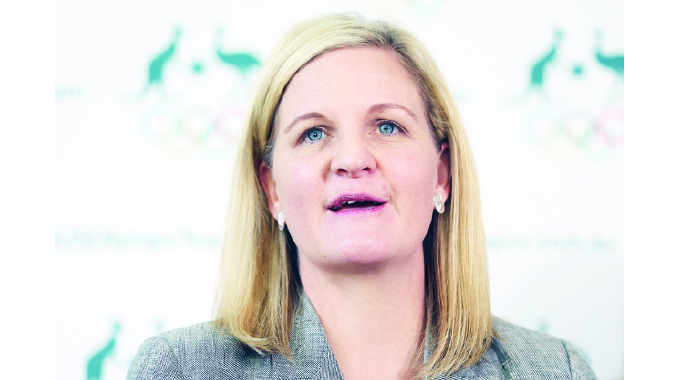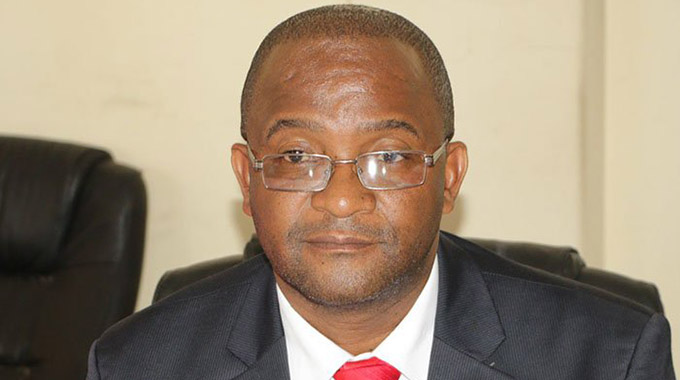AfCFTA: Imitation is best way to recreating ideas

Gibson Nyikadzino Correspondent
It is now high time Africans stop wanting to promote transformation in our societies while using old manners.
In the 21st century, as informed by history, if one does not imitate (because there is nothing without imitation) those who have been before, it will be difficult to recreate existing ideas because there is nothing new in this world.
On the basis of one idea, multitudes of ideas can be birthed. They only have to be conceptualised and implemented in our context and social milieu.
Since the 1970s, there has been a proliferation of economic and trade agreements among African countries.
These have been, in one form or another, the Preferential Trade Agreement (PTA), the Common Market for Eastern and Southern Africa (COMESA), protocols and trade guidelines in the SADC, ECOWAS, the East African Community (EAC) and the New Partnership for Africa’s Development.
Most of these trade agreements have had a lot of bark and very little bite.
Now, there is another trade agreement that many African countries see as a necessity to the transformation of economies and giving a boost to intra-continental cooperation, that is, the African Continental Free Trade Area (AfCFTA).
When the trade agreement was promulgated, it was a relief moment for Africa, with the hope that the agreement would not be providing a lot of bark and very little bite like other preceding protocols.
By contrast, in 2022, intra-continental trade share in Africa stood at only 12 percent, compared to 47 percent in North America, 53 percent in Asia, and 69 in Europe. Africa is the only bloc that has the least trade amongst its 55 members.
Among other factors, the biggest to this sad intra-continent trade numbers are the lack of diversification plans by some African countries to move away from an only natural resource’s economy and towards a services economy, which boosts intra-African trade.
It is understandable that AfCFTA is still work in progress, however it appears there is a strong trust deficit among African countries, yet, like charity, trade begins at home. Africa need not look so far away: it should look to itself.
When looking to itself, Africa should also take advantage of the changing international context, only if the continent’s leaders have a willingness to change the trajectories of their countries. For example, intra-African trade appears to be stifled by stringent rules that are making it strenuous for citizens to move from one country to another, that needs to be addressed.
Unenviable scenarios
Over the past decade, there have been shifts regards the perceptions Africans have on the Chinese.
Top surveys that have been conducted on Perceptions of Great Powers in Africa have shown that many Africans now perceive China as more helpful to their macro-economic needs than the Americans whose presence in Africa is harmful.
These surveys have pushed a great second-scramble of Africa, and sadly, no researches have been published at length to assess how the American, Asian, Middle-Eastern and European nationals perceive Africa.
Major shifts on Africans’ perceptions on the West in general emanate from the condescending and paternalistic attitude of the USA and Western Europe towards Africa.
Despite those telling surveys, every major power and other rising powers are now keen on doing business with Africa.
Special forums and conferences are dedicated yearly to find out ways to engage and trade with Africa, under the circumstances that rarely bring a spark to Africa’s economy.
Having every player wanting to rush towards Africa is not something to be happy about in a wholesale way.
By 2022, Africa-China trade rose by 11 percent, mainly emanating from a strategy by China to promote imports from Africa to US$282 billion. According to the Chinese customs authorities, China’s exports to Africa were US$164.49 billion, while imports reached US$117.51 billion.
While China’s trade with Africa rose, at the 2022 US-Africa summit on leadership, plans were made to boost African exports to the US by US$1 billion through investments and partnerships, and for 2023, it is also expected the US will mobilise an additional US$1 billion for investments in Africa.
At the US-Africa Business Forum, more announcements were made for “new investments and initiatives” totalling US$15.7 billion, for all the 54 African countries on the continent.
In addition, the US said it would lend up to US$21 billion via the International Monetary Fund (IMF) to low and middle-income countries, to “support African resilience and recovery efforts”.
These scenarios are all unenviable, as in most cases Africans have not managed to put out the terms of how these big and emerging powers should engage with Africa’s.
Addressing the predicament
Trade is not the only panacea to Africa’s woes. For the AfCFTA to work, African leaders need to rethink and sit at another table that produces terms of engagement with the rest of the world.
Africa is that one continent at the centre to provide easy access to Europe, Asia, the America’s and the Middle-East and South-East Asia. It should be easy for other countries to invest in Africa.
To keep AfCFTA rolling, there are numerous policies the African leadership should seriously consider to embrace and boost trade and increase regional cohesiveness and integration.
It will be difficult to see the success of this agreement without improving continental infrastructure like roads, digital internet services and rail; without a single currency like the Euro is to the European Union (EU); without a legal and investment framework that removes time barriers for entrepreneurs and foreign investors to establish businesses on the continent.
In her book, Dead Aid, Zambian economist Dambisa Moyo notes that “trade need not just be international” but that Africa needs to generate domestic demand for goods and services locally produced and also “placing focus on other non-tradeable sectors including encouraging entrepreneurial investments”.
Common heritage of humanity
Africa should not reinvent the wheel about the AfCFTA. It has to imitate what others have done. The biggest economies that are being envied today are all products of imitation.
The China being celebrated today is a product of imitation; the USA’s successes were first imitation of Germany; the Arabs imitated the Indians and Greeks simply because imitation is the common heritage of humanity.
The Chinese were brave enough in the late 1970s to admit that they did not know much and invited chief executive officers (CEOs) from the American, German, French, British and Italian companies to teach and give them knowledge on corporate management and leadership. That admission has given tremendous results.
The EU provides a template on how useful and important it is for countries in the same region to work together.
The EU has made progress, positive and negative towards other continents, through what they call “common positions or a common consensus”.
AfCFTA can also be implemented from imitation that recreates existing ideas as this is premised on a common heritage. There is need to implement mechanisms that speak to our realities and create synergies that reflect the dynamism that exists between that system and our reality.
The Algerian example
African countries have shown the will to implement the AfCFTA and Algeria is working to strengthen the necessity of the development of a strong African economy through economic integration by implementing mega projects under the AfCFTA purview to promote intra-African trade.
Of note, the North-African country has constructed a 4 500km road linking Algeria, Nigeria, Ivory Coast, Senegal and other African countries through Mali and Niger.
It is also constructing a port in Cherchell which is set to be a regional hub for North Africa in the Mediterranean Sea, and boost intra-continental trade by 52 percent. These projects are pointing to the success Africa can have through the implementation of AfCFTA.
These great continental projects are kept out of international media because the West is never happy about such progress, especially in Africa.
What is needed?
What is need is a popular will by our leaders to organise and mobilise the African citizenry to forcefully sharpen our capabilities and counter negative talk through pragmatic action.
We should have no interest in what we are not capable of, but accept we want the better for the continent for the next four decades to Agenda 2063.
Africans, remember we are one! This is homeland.








Comments